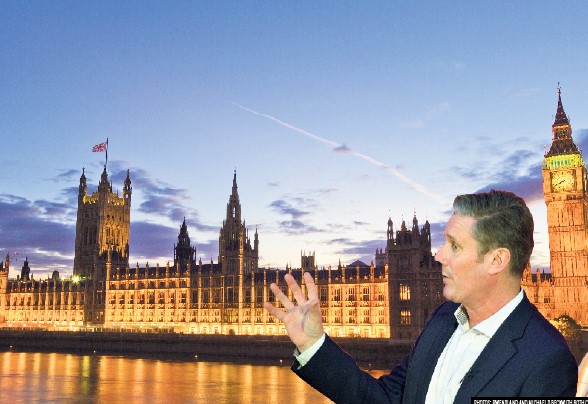Organise now for anti-war, anti-austerity workers’ candidates
Sarah Sachs Eldridge, Socialist Party Executive Committee
Anger at Labour leader Sir Keir Starmer has blazed on the mass demonstrations and protests against the slaughter in Gaza. On the BBC’s Question Time, Shadow Attorney General Emily Thornberry was typical of Labour spokespeople who repeatedly refuse to condemn the cutting off of water, food, power supplies and medicines to Gaza.
Many marchers have made the comparison with Jeremy Corbyn. The Labour Party’s anti-austerity manifesto at the 2019 general election, under the leadership of Corbyn, included committing an incoming government to strive for peace in the Middle East, including recognition of the state of Palestine.
Socialists go further, supporting mass workers’ struggle in the Middle East to transform the situation in a socialist direction. But however limited Corbyn’s 2019 policies, the comparison with Starmer is stark. Of course, the Israeli regime’s attacks on the Palestinians are supported by the Tories. But Starmer, as on so many issues, just says ‘me too’.
Starmer’s approach means many cannot back Labour in the future. The call to build an anti-war, working-class alternative is welcomed by protesters because the difference such a voice could make is understood.
However, many marchers will be members of trade unions whose leaders, with authority from leading the strike wave, have also told them that a vote for Labour is necessary to get the Tories out. This claim, however, is coming under increasing pressure – by Starmer’s war stance but also by the results of the recent by-elections.
“Our vote is on strike,” was the conclusion drawn by one Tory MP following the Tamworth and Mid Bedfordshire by-elections on 19 October. With collapses in Tory votes of 20,000 and 26,000 respectively in the two seats, they weren’t wrong.
The reasons to not vote Tory are legion. From the housing crisis, to low pay, inflation, the cost-of-living crisis, and climate change, to the support for the onslaught on Gaza. They have no answers to any of the problems facing the majority of people. They defend a capitalist system underlying the situation.
A poll published recently by the Observer suggested Labour would win 420 seats – equating to a landslide 190-seat majority. Election commentator John Curtice went so far as to raise the possibility of a landslide bigger than Tony Blair’s 1997 win. So the idea that building a workers’ election challenge risks a Tory government doesn’t hold.
The by-elections also show how little enthusiasm there is for Starmer’s Labour. In Tamworth, Labour’s 11,719 votes represent an increase of less than a thousand since 2019 when Starmer and the Blairites sabotaged Corbyn. In Mid-Beds, the Labour vote was down on Corbyn’s 2019 result. There the Labour vote almost doubled in 2017 to 17,953 when Corbyn offered an anti-austerity alternative, attracting over 4,000 more votes than Starmer’s candidate has this year.
The perspective, nonetheless, is for a Starmer-led government to be in power in the next year. What that means for working-class people is clear. Starmer, shadow chancellor Rachel Reeves, and co are at pains to show that any alternative to the capitalist status quo is not on offer from them.
Foreign policy is only domestic policy abroad. This is also the party that is pledged to maintain the two-child benefit cap, supports the attacks on the right to protest and is proud to be seen in the tradition of warmonger Tony Blair.
Of a piece with this is the ban on Labour MPs and council leaders attending the demonstrations against the war on Gaza. In response, a number of councillors have resigned and Starmer has been forced to back-pedal a touch.
This is a tiny indication of the pressure even a small bloc of anti-war, anti-austerity workers’ MPs could have, which could include Corbyn, who will not be standing as a Labour candidate.
And it would be entirely possible to achieve that at the next general election, if steps were taken now by even a couple of the left-led trade unions to establish a new party, or at least organise an election coalition list. That is what the Socialist Party is fighting for.









